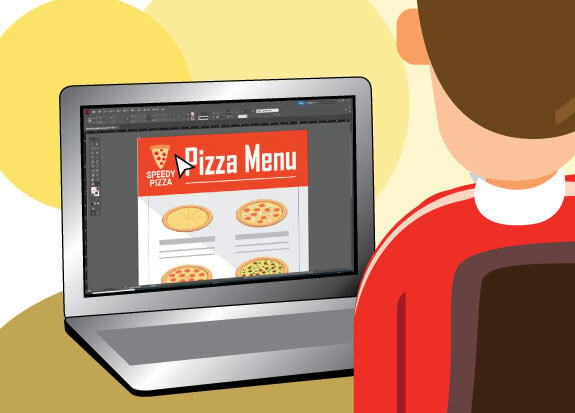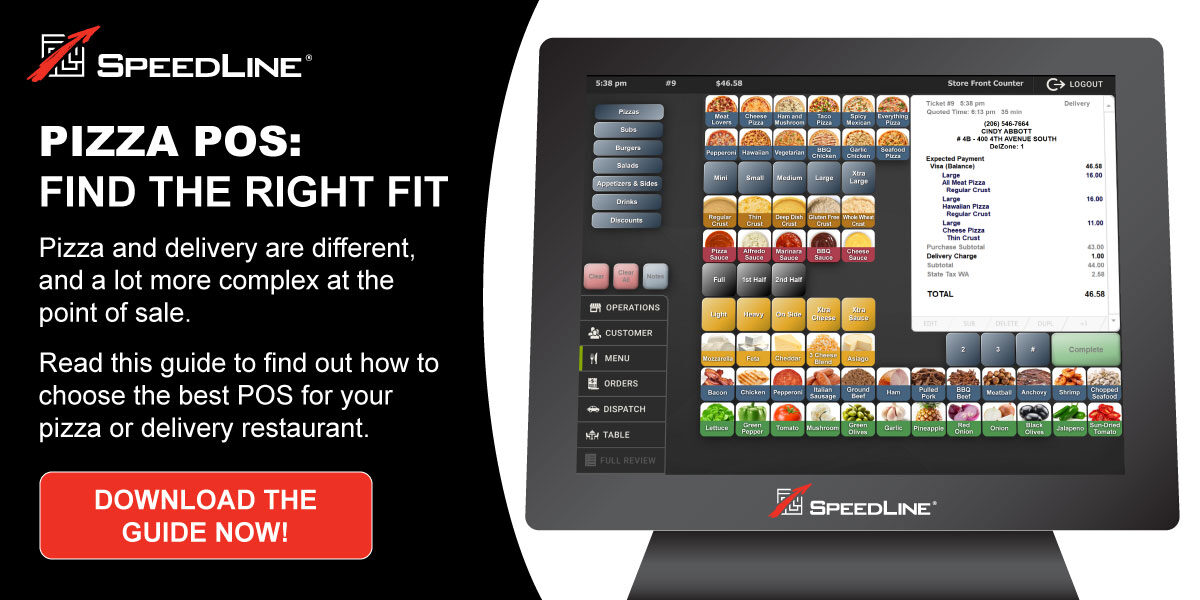Your restaurant’s menu is the gateway to customers' hearts (and wallets). By incorporating psychological strategies into your menu planning, you can entice diners to spend more and make choices that benefit your bottom line. This blog post explores psychology-based strategies that can help you create a successful menu.
1. Leverage the Power of Anchoring
Place a high-profit item next to a slightly more expensive one to make the latter seem like a better deal.
Best Practice: Include a pizza with premium ingredients that is significantly more expensive than your average pizza. It makes your regular gourmet pizzas seem like a great value, encouraging customers to opt for them.
2. Highlight Your Signature Dishes
Use persuasive language and visual cues to draw attention to your most profitable dishes.
Best Practice: Make your restaurant's unique or staple pizza stand out on the menu with phrases like "Chef's Special Creation" or "House Signature Pizza." Incorporate mouth-watering images of this dish to make it irresistible.
3. Create Value with Bundles
Bundle items together to encourage upselling and increase the perceived value of each dish.
Best Practice: Offer a "Family Feast" package, which includes a large pizza, salad, and dessert at a discounted price compared to ordering each item separately. Value meals and package deals boost sales while making your customers feel like they're getting a great deal.
4. Place Items Strategically
Features high-margin items by placing them strategically on the menu.
Best Practice: Position your most profitable dishes in the top-right corner of the menu. Eye-tracking studies have shown that this is where customers' eyes tend to go first. Make sure your top items are in this prime location.
5. Create a Story Around Dishes
Use storytelling to make your menu items more enticing and relatable.
Best Practice: If you have a pizza with a unique history or a secret family recipe, share that story on the menu. Another great option is to highlight the use of locally sourced ingredients. People love to feel connected to their food; a compelling narrative can make a dish more memorable and desirable.
6. Limit Choices
Keep your menu concise to prevent choice overload, which can lead to decision fatigue and lower spending.
Best Practice: Offer a variety of pizzas with different styles and flavors, but don't overwhelm customers with too many options. A well-thought-out, compact menu is easier for customers to navigate and decide from. Research shows that seven items per category is the sweet spot, but test how many items work best for your menu.
7. Use Descriptive Language
Describe dishes in a way that evokes sensory experiences with taste and smell.
Best Practice: Instead of just listing ingredients, describe how they come together to create a flavorful experience. For instance, instead of "Margherita Pizza," you could say "Fresh basil, vine-ripened tomatoes, and creamy mozzarella cheese atop a thin, crispy crust."
8. Highlight Healthier Options
Place healthier dishes strategically on the menu to cater to health-conscious customers.
Best Practice: Offer a section of your menu dedicated to lighter options, such as salads or whole-grain crust pizzas. By showcasing these items, you attract a broader range of customers and demonstrate your commitment to their well-being.
9. Update and Rotate Your Menu Regularly
Keep your menu fresh and exciting by introducing seasonal items or limited-time offers.
Best Practice: Offer a new specialty pizza featuring ingredients that are in season. This strategy encourages repeat visits from regular customers who want to try an exclusive menu item and creates a sense of urgency.
Conclusion
Menu design is an art that combines culinary expertise with psychological insights. By understanding the principles of decision-making, you can boost your profits while creating a memorable dining experience for your customers. Investing in a reliable POS system can help you track sales, analyze customer preferences, and make data-driven decisions to optimize your restaurant’s menu and boost profitability. All that’s left is to put these strategies to work and watch your profits rise to new heights!
Interested in learning more about how you can craft the perfect menu for your restaurant? Download the Creating Great Menus for your Restaurant eBook.
Posted on Wed, Oct 04, 2023 @ 08:10 AM.
Updated on August 2, 2024 @ 9:55 PM PST.


